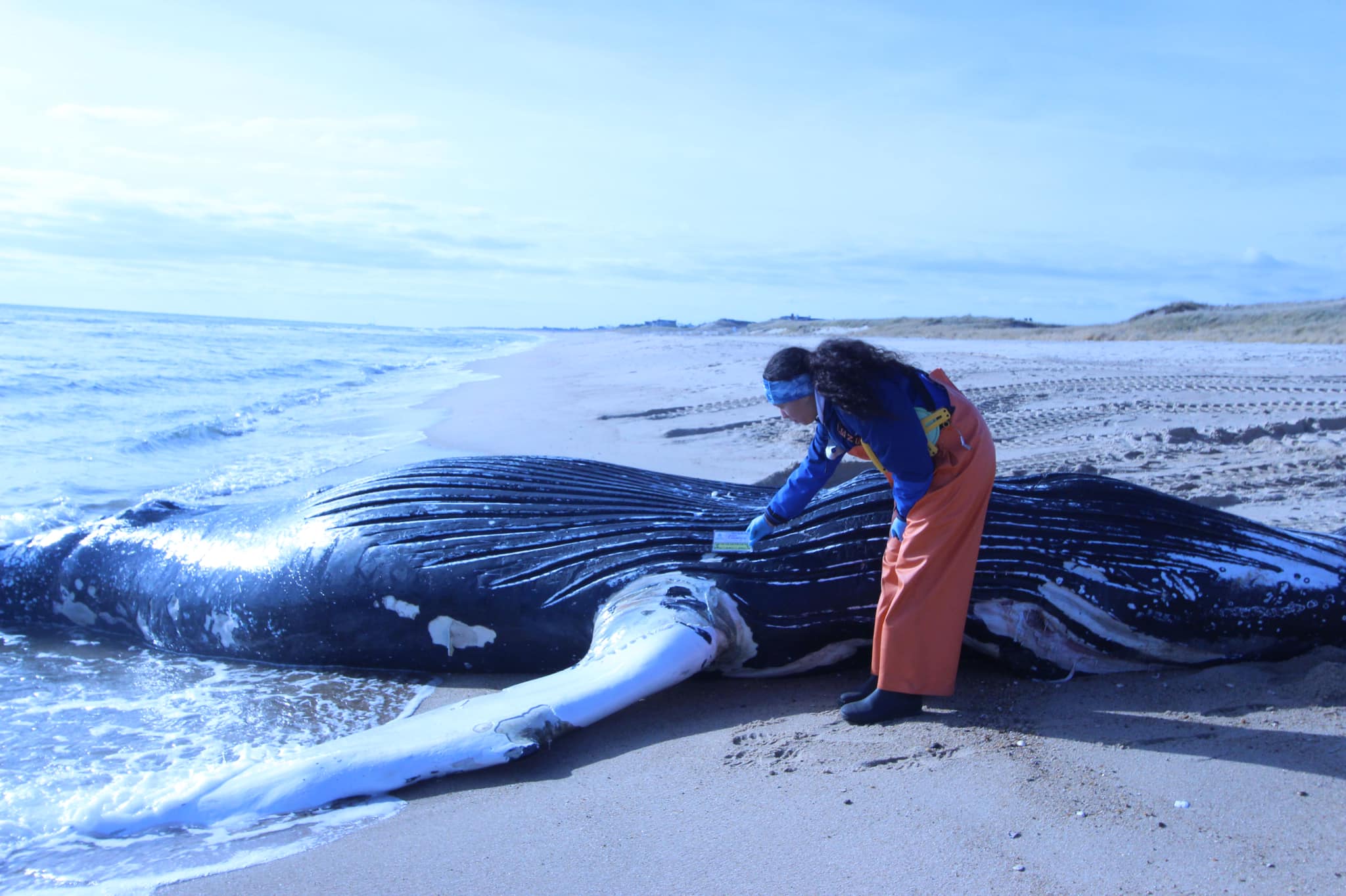Group Blames Wind Farm for Hamptons Whale Death

Offshore wind farm construction may be the cause of the death of a whale in Amagansett that was among six whales recently found dead in New York and New Jersey, environmentalists said.
The New Jersey-based Clean Ocean Action called for a federal probe into the deaths of six whales that washed ashore over a 33-day span in areas being prepared for large-scale offshore wind farms. They also are asking for a halt to site work until the causes are determined.
“Is it an omen?” Cindy Zipf, the group’s executive director, asked during a news conference January 9, calling the rate of whale deaths in the two states unprecedented. “Is it an alarm? Never before have we had six whales wash up in 33 days.”
She said survey boats explore the ocean floor using focused pulses of low-frequency sound in the same frequency that whales hear and communicate, which could potentially harm or disorient the animals. But a prominent marine mammal stranding expert said that while the cause of the deaths is unknown, it could be a simple function of a larger-than-normal number of whales in the area this winter, with the number of deaths rising proportionately.
And the National Oceanic and Atmospheric Administration said that, to date, no humpback whale — the species accounting for most of the recent whale deaths in New Jersey and New York — has been found to have been killed due to offshore wind activities. NOAA said it has been studying what it calls “unusual mortality events” involving 174 humpback whales along the entire U.S. East Coast since January 2016, which predates offshore wind farm work in the region.
The first whale in the spate of deaths was found in New Jersey on December 5. The Amagansett whale washed up the next day followed by another in New Jersey on December 10 and a fourth in Far Rockaway on December 12. Two more whales washed up in Atlantic City on December 23 and January 7.
Orsted, the Danish wind power developer that will build two of three approved projects in the region, said its current work off the New Jersey coast does not involve using sounds or other actions that could disturb whales.
“As the world’s most sustainable energy company, we prioritize coexistence with our communities and marine wildlife,” said Maddy Urbish, the company’s head of government affairs for New Jersey. “When offshore, we combine human surveillance and state-of-the-art technical equipment to avoid any impact on marine wildlife as we build projects to advance New Jersey’s clean energy ambitions.”
-With Associated Press



